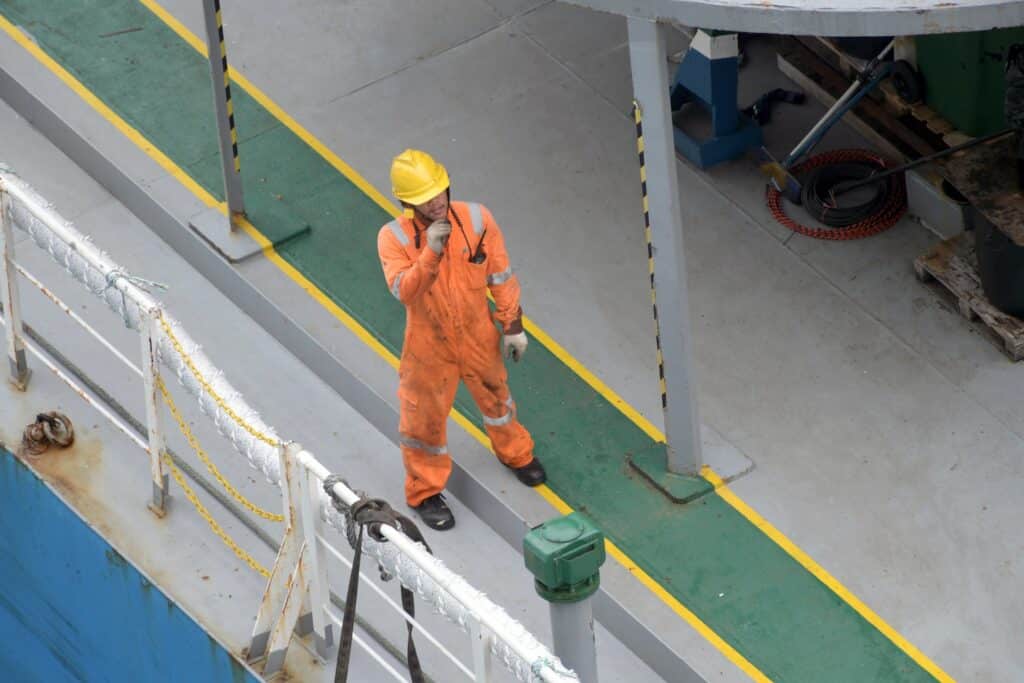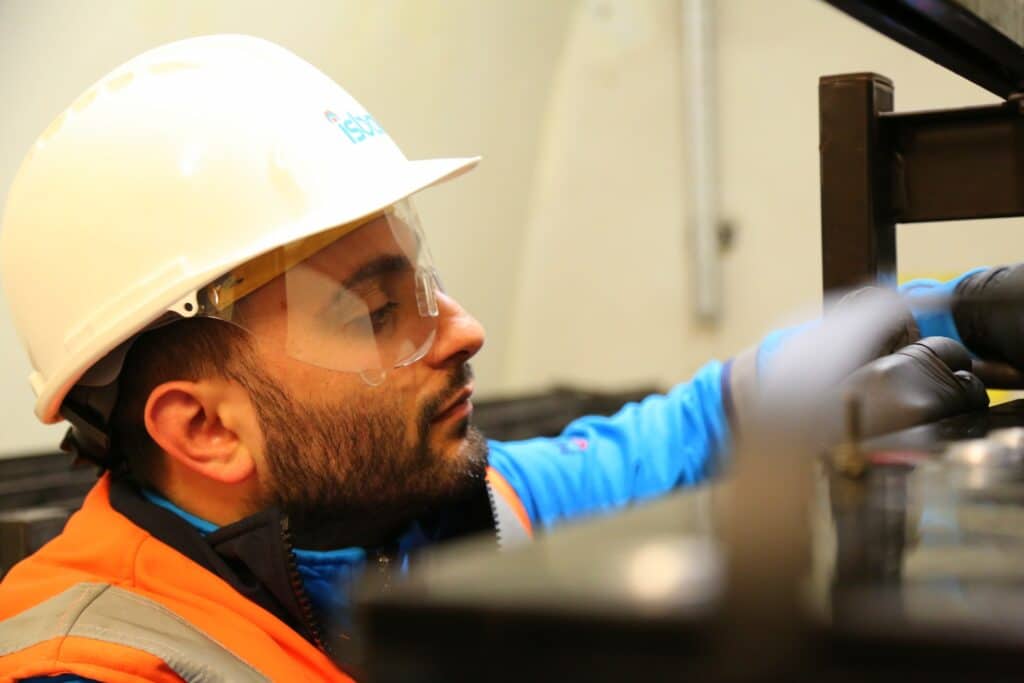An elevator mechanic is a highly skilled professional who specializes in the installation, maintenance, and repair of elevators, escalators, and other vertical transportation systems. This role is instrumental in ensuring the safe and efficient operation of these essential components within various structures, from office buildings to residential complexes. Elevator mechanics possess a unique combination of technical prowess and problem-solving abilities, as they not only handle intricate mechanical components but also troubleshoot and rectify potential issues swiftly.
As companies continue to invest in cutting-edge infrastructures, the role of an elevator mechanic becomes even more crucial. These professionals possess a unique blend of technical expertise and interpersonal finesse, ensuring not only the optimal performance of elevators but also enhancing the overall user experience. In this blog, we’ll delve into the key attributes that define a proficient elevator mechanic, encompassing both their hard skills—technical competencies—and their soft skills—communication, problem-solving, and customer service abilities. We’ll explore strategies to evaluate their skills effectively, discuss where to find the best talents, and provide insights into crafting a comprehensive elevator mechanic job description. By the end of this guide, you’ll be well-equipped to navigate the process of hiring an elevator mechanic who can elevate your company’s success to new heights.
What is the role of an elevator mechanic?
Roles and responsibilities:
Elevator mechanics play a critical role in the growth and success of a company, as they contribute to:
Safety: Elevator mechanics ensure that elevators meet stringent safety standards, minimizing risks for occupants and complying with regulations.
Efficiency: They optimize elevator performance, enhancing the movement of people and goods within a building, which directly impacts overall operational efficiency.
Customer Satisfaction: By maintaining smooth elevator operation, mechanics enhance user experience, leaving a positive impression on tenants, visitors, and clients.
Preventive Maintenance: Elevator mechanics conduct routine inspections and proactive maintenance, preventing potential breakdowns and costly repairs.
Emergency Response: When malfunctions occur, mechanics are adept at diagnosing issues promptly and executing efficient repairs to minimize downtime.
Tasks performed by elevator mechanics:
- Installing and configuring elevator systems.
- Conducting regular inspections to identify wear and tear.
- Lubricating and adjusting mechanical components.
- Diagnosing and troubleshooting technical problems.
- Repairing and replacing faulty parts.
- Performing safety tests and certification.
- Keeping detailed records of maintenance activities.
- Collaborating with other maintenance and engineering teams.
In essence, an elevator mechanic is not only a technician but also a guardian of vertical mobility, contributing directly to a company’s reputation, efficiency, and overall growth.
Hard skills to assess in an elevator mechanic
When evaluating potential candidates for the role of an elevator mechanic, it’s crucial to focus on their hard skills—the technical competencies that define their ability to install, maintain, and repair elevators effectively. These skills are the foundation upon which an elevator mechanic’s expertise is built, ensuring the safe and reliable operation of vertical transportation systems. Here are key hard skills to assess when hiring an elevator mechanic:
1. Mechanical aptitude:
- Look for candidates who exhibit a deep understanding of mechanical systems and components.
- Assess their knowledge of elevator mechanisms, including pulleys, cables, brakes, and motors.
2. Electrical expertise:
- Evaluate candidates’ familiarity with electrical circuits and wiring, crucial for elevator controls and safety systems.
- Inquire about their experience in troubleshooting electrical issues that might arise.
3. Technical knowledge:
- Gauge their understanding of elevator-specific technologies, such as control panels and digital displays.
- Test their comprehension of hydraulic and traction-based elevator systems.
4. Problem-solving skills:
- Present real-life scenarios and ask candidates to outline their approach to diagnosing and rectifying common elevator malfunctions.
- Inquire about their methods for quickly identifying issues to minimize downtime.
5. Safety compliance:
- Discuss their knowledge of safety regulations and protocols governing elevator installation and maintenance.
- Emphasize the importance of adherence to safety guidelines to protect both occupants and maintenance personnel.
6. Tool proficiency:
- Inquire about their familiarity with specialized tools and equipment used in elevator repair.
- Ask about their experience in using tools to dismantle and reassemble elevator components.
7. Certification and training:
- Check for certifications from reputable organizations related to elevator mechanics.
- Discuss any formal training or apprenticeships they have completed.
Assessment approach:
To gauge these hard skills effectively, consider a multi-faceted approach.
- Technical Test: Administer a written or practical assessment to evaluate their knowledge of elevator mechanics.
- Problem-Solving Scenarios: Present candidates with hypothetical elevator issues and assess their troubleshooting strategies.
- Certification Verification: Verify their certifications and inquire about the training programs they’ve completed.
- Work Portfolio: Request examples of their previous projects or repair work to gauge their hands-on experience.
By carefully evaluating these hard skills, you can ensure that your chosen elevator mechanic possesses the technical proficiency required to maintain the safety, efficiency, and functionality of your vertical transportation systems.
Soft skills to assess in an elevator mechanic
Beyond technical proficiency, the success of an elevator mechanic hinges on their soft skills—those intangible qualities that dictate how well they collaborate, communicate, and navigate the complex landscape of their role. Elevator mechanics often interact with building occupants, clients, and fellow team members, making these skills vital for delivering a seamless and satisfying experience. Here are key soft skills to assess when hiring an elevator mechanic:
1. Communication proficiency:
- Evaluate candidates’ ability to explain complex technical concepts in a clear and understandable manner to non-technical stakeholders.
- Assess their aptitude for maintaining open lines of communication with team members and clients.
2. Problem-solving attitude:
- Look for individuals who approach challenges with a positive mindset, demonstrating adaptability and resourcefulness.
- Inquire about times they’ve creatively solved unexpected issues on the job.
3. Customer service orientation:
- Assess candidates’ capacity to interact courteously with building occupants and clients, addressing concerns and queries professionally.
- Inquire about their strategies for ensuring a positive experience for elevator users.
4. Attention to detail:
- Discuss their approach to meticulous work, particularly when it comes to inspecting and maintaining intricate elevator components.
- Ask about instances when their keen eye for detail prevented potential problems.
5. Team collaboration:
- Evaluate their ability to work harmoniously within a team, as elevator mechanics often collaborate with other maintenance personnel and engineers.
- Inquire about their experiences contributing to successful team projects.
6. Time management:
- Discuss their approach to balancing multiple tasks and deadlines efficiently.
- Ask about their methods for prioritizing urgent repairs without compromising quality.
7. Adaptability and learning agility:
- Inquire about their willingness to stay updated on evolving elevator technologies and industry best practices.
- Discuss how they’ve adapted to new challenges or technologies in their previous roles.
Assessment approach:
Evaluating these soft skills necessitates a thoughtful approach.
- Behavioral Interviews: Pose situational questions to candidates, asking them to share past experiences that highlight their soft skills in action.
- Role-Play Scenarios: Present hypothetical scenarios that require effective communication or problem-solving, observing how candidates respond.
- Reference Checks: Reach out to previous employers or colleagues to gain insights into the candidates’ interpersonal dynamics and work ethic.
- Group Assessment: If possible, include candidates in group activities to observe their collaborative skills.
By carefully assessing these soft skills, you can secure an elevator mechanic who not only possesses technical prowess but also excels in fostering positive relationships, enhancing customer satisfaction, and contributing to a harmonious work environment.

How to test an elevator mechanic’s skills
When selecting an elevator mechanic, assessing their technical skills is paramount to ensure the safe and efficient operation of your vertical transportation systems. Implementing comprehensive technical tests can help you gauge a candidate’s proficiency before making a hiring decision. Here are essential technical tests to consider and why they are vital:
1. Practical hands-on test:
- Challenge candidates to perform common elevator maintenance tasks, such as adjusting brakes, inspecting cables, or troubleshooting minor issues.
- Importance: This test directly assesses their ability to handle real-world scenarios, ensuring their practical competence aligns with your requirements.
2. Wiring and electrical circuit assessment:
- Present candidates with wiring diagrams and ask them to identify and troubleshoot potential electrical problems.
- Importance: Elevator mechanics need to comprehend complex electrical systems to maintain safe and functional elevators.
3. Problem-solving scenario test:
- Pose hypothetical elevator malfunction scenarios and ask candidates to outline their step-by-step approach to diagnosing and rectifying the issue.
- Importance: This test reveals their critical thinking skills and ability to analyze problems systematically.
4. Technical written test:
- Administer a written assessment covering elevator mechanics’ theoretical aspects, including elevator types, safety regulations, and maintenance protocols.
- Importance: A strong grasp of elevator theory is crucial for informed decision-making during repairs and installations.
5. Simulation tests:
- Utilize elevator simulation software that mimics real-world scenarios, allowing candidates to troubleshoot and repair virtual elevator systems.
- Importance: Simulation tests provide a controlled environment to evaluate candidates’ reactions under pressure, replicating actual job demands.
6. Certifications verification:
- Confirm the authenticity of certifications they claim to possess, ensuring they have received formal training from reputable sources.
- Importance: Certifications validate their commitment to the field and provide evidence of their education and training.
7. Skills-based projects:
- Assign candidates tasks related to elevator installation, maintenance, or repair, and evaluate the quality and efficiency of their work.
- Importance: Projects showcase their problem-solving abilities, workmanship, and attention to detail.
By incorporating these technical tests into your hiring process, you can accurately measure an elevator mechanic’s expertise, reducing the risk of mis-hires and ensuring that the selected candidate possesses the practical and theoretical skills necessary for the demanding role.
Where to find the best elevator mechanic
Finding the right elevator mechanic requires tapping into platforms that connect you with qualified professionals who can elevate your company’s vertical transportation systems. Here’s where to locate the best-suited candidates and how to leverage these platforms effectively:
1. Job boards and websites:
- Post detailed job listings on industry-specific job boards and websites catering to construction, engineering, and maintenance roles.
- Leverage keywords and accurate job descriptions to attract candidates with relevant experience.
2. Industry associations:
- Engage with elevator mechanic associations and groups, both locally and nationally, which often host job boards and networking events.
- Attend industry conferences to connect directly with potential candidates.
3. Social media:
- Utilize professional networks like LinkedIn to share job postings and interact with elevator mechanics seeking new opportunities.
- Join relevant groups and forums to engage in discussions and identify potential candidates.
4. Apprenticeship programs:
- Collaborate with technical schools and trade programs that offer elevator mechanic training.
- Reach out to recent graduates or apprentices looking to transition into full-time roles.
5. Referrals and recommendations:
- Encourage your existing team members and industry contacts to refer qualified elevator mechanics.
- Offer referral incentives to motivate recommendations.
6. Local unions:
- Connect with elevator mechanic unions in your area, which can assist in sourcing skilled professionals seeking employment.
- Attend union events and meetings to network with potential candidates.
7. Recruitment agencies:
- Partner with specialized recruitment agencies that focus on technical roles within the construction and maintenance sectors.
- Benefit from their expertise in identifying and screening suitable candidates.
8. Company website:
- Create a dedicated careers page on your company’s website, featuring comprehensive information about the elevator mechanic role and your organization.
- Provide an easy application process to encourage interested candidates to apply.
Leveraging these platforms ensures that you cast a wide net to find experienced and capable elevator mechanics who align with your company’s needs. Combine a strategic approach with engaging job descriptions to attract the best talent and secure professionals who can keep your elevators operating seamlessly.
Elevator mechanic job description template
Have a look at this job description template to hire an elevator mechanic.
About Us: [Company Name] is a leading [industry/sector] firm dedicated to providing top-notch vertical transportation solutions to a diverse range of clients. With a commitment to safety, innovation, and excellence, we are seeking a skilled Elevator Mechanic to join our dynamic team and contribute to the seamless operation of our clients’ elevator systems.
Responsibilities:
- Install, maintain, and repair elevator systems, ensuring optimal performance and compliance with safety regulations.
- Conduct routine inspections, identify potential malfunctions, and perform necessary repairs to prevent downtime.
- Troubleshoot and diagnose complex mechanical and electrical issues, implementing effective solutions.
- Collaborate with engineering and maintenance teams to coordinate repairs and improvements.
- Maintain accurate documentation of maintenance activities, including service reports and equipment status.
- Provide exceptional customer service by addressing client concerns and inquiries professionally.
- Adhere to industry best practices and safety protocols during all maintenance and repair activities.
Qualifications:
- High school diploma or equivalent; completion of relevant vocational or technical training is preferred.
- Proven experience as an Elevator Mechanic, showcasing expertise in elevator installation, maintenance, and repair.
- Strong mechanical aptitude and familiarity with elevator components, electrical systems, and hydraulic systems.
- Excellent problem-solving skills, with the ability to diagnose and rectify technical issues efficiently.
- Knowledge of safety regulations and protocols related to elevator maintenance and repair.
- Effective communication skills to interact with clients, team members, and other stakeholders.
Why join us?
- Join a team of dedicated professionals passionate about delivering excellence in vertical transportation solutions.
- Contribute to the safe and efficient operation of elevator systems in diverse environments.
- Opportunity for professional growth and skill development within a supportive work culture.
- Collaborate with experienced industry experts and access ongoing training to stay updated on technological advancements.
Benefits:
- Competitive salary and compensation package based on experience and qualifications.
- Health, dental, and vision insurance plans to ensure your well-being and that of your family.
- Retirement savings plans to secure your financial future.
- Paid time off and holidays for a healthy work-life balance.
- Ongoing training and skill development opportunities to stay ahead in the field.
Application Process: Interested candidates are invited to submit their resume and a cover letter detailing their relevant experience to [HR email/contact]. Please include “Elevator Mechanic Application” in the subject line. Shortlisted candidates will be contacted for further steps in the selection process.
[Other Important Information: Company location, contact details, equal opportunity employer statement, any specific application requirements or deadlines]
Join us in elevating the vertical transportation experience for our clients and be part of a team that values expertise, innovation, and safety. Apply now and make your mark as an Elevator Mechanic with [Company Name].

How much does an elevator mechanic cost?
Elevator mechanic salaries in the US vary based on experience and skill levels. On average, entry-level mechanics earn around $40,000 to $50,000 annually. With 3-5 years of experience, earnings typically range from $55,000 to $65,000. Highly experienced mechanics with over 5 years’ of experience can earn upwards of $70,000 per year. Salaries can also be influenced by specialized skills such as knowledge of advanced elevator systems, electronics, or automation, which can command higher compensation. These figures are subject to regional variations and industry demand.
Elevator mechanic interview questions
Conducting a comprehensive interview is crucial to identify the ideal elevator mechanic for your team. Tailoring questions to evaluate both technical expertise and interpersonal qualities will help you make an informed hiring decision.
Importance of Interview Questions: These questions provide insights into a candidate’s technical proficiency, problem-solving abilities, and interpersonal skills. They also help gauge their fit with your company’s values and the specific demands of the elevator mechanic role.
Hard skills:
- Can you describe your experience with installing and maintaining different types of elevator systems?
- How do you troubleshoot and address common issues like irregular door operation or sudden stops?
- Explain the process you follow for conducting safety tests and ensuring compliance with industry regulations.
Soft skills:
- Could you share an example of a time when you successfully communicated complex technical information to a non-technical client or team member?
- How do you handle high-pressure situations where immediate action is required to address an elevator malfunction?
- Describe a scenario in which you collaborated effectively with colleagues from different trades on a maintenance project.
General skills:
- What motivated you to pursue a career as an elevator mechanic, and what keeps you passionate about the field?
- How do you stay updated on the latest industry trends, technologies, and safety regulations?
- Can you share an instance when you proactively improved a maintenance process to enhance efficiency?
Problem-solving and adaptability:
- Walk us through a particularly challenging elevator repair you’ve undertaken and how you resolved it.
- What strategies do you employ to quickly identify the root cause of a malfunction and implement a solution?
Customer service:
- How do you approach interactions with building occupants when conducting maintenance? Can you share an example of a positive interaction?
- What steps do you take to ensure minimal disruption to building occupants during maintenance or repairs?
Ethical decision-making:
- How do you prioritize safety when faced with conflicting deadlines for repairs? Can you share an example?
Long-term vision:
- Where do you see the elevator industry heading in terms of technological advancements, and how do you plan to adapt to these changes?
These interview questions provide a holistic view of a candidate’s technical prowess, problem-solving acumen, communication abilities, and alignment with your company’s values. By combining insights from their responses with their practical skills, you can make a well-informed decision about the right elevator mechanic for your team.
Assess for elevator mechanic to avoid mis-hires
Hiring an elevator mechanic is a critical decision that directly impacts the safety and efficiency of your vertical transportation systems. Incorporating elevator mechanic assessment into your hiring process can significantly mitigate the risk of mis-hires and ensure that the chosen candidate possesses the required technical expertise and soft skills.
Streamlining Time to Hire: Skill assessments expedite the candidate evaluation process, allowing you to quickly identify top contenders based on their practical and theoretical capabilities. This not only reduces time-to-hire but also ensures that the selected candidate is well-suited for the demanding role.
Enhanced Assessment Accuracy: Assessments provide an objective measure of a candidate’s abilities, going beyond resumes and interviews. By evaluating technical and soft skills through hands-on tasks and scenario-based questions, you gain a more accurate understanding of their fit for the elevator mechanic role.
To streamline your elevator mechanic hiring process, consider Testlify. With tailored assessments designed to evaluate both technical competence and interpersonal attributes, Testlify ensures you make informed decisions. Schedule a demo today to see how Testlify can revolutionize your hiring strategy and help you secure elevator mechanics who will excel in your team. Schedule a free 30-minute live demo with Testlify and Elevate Your Hiring Process Today!








